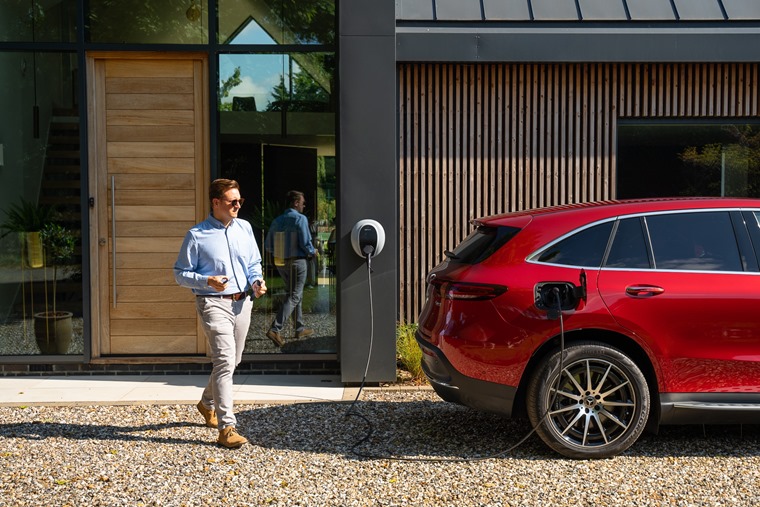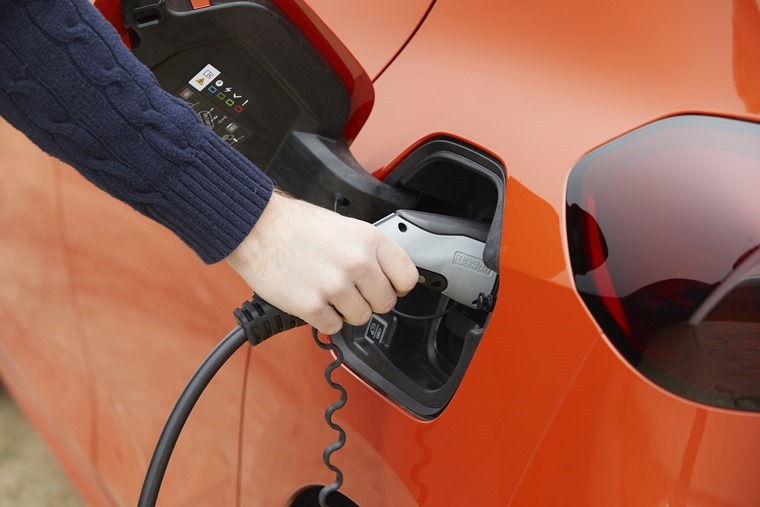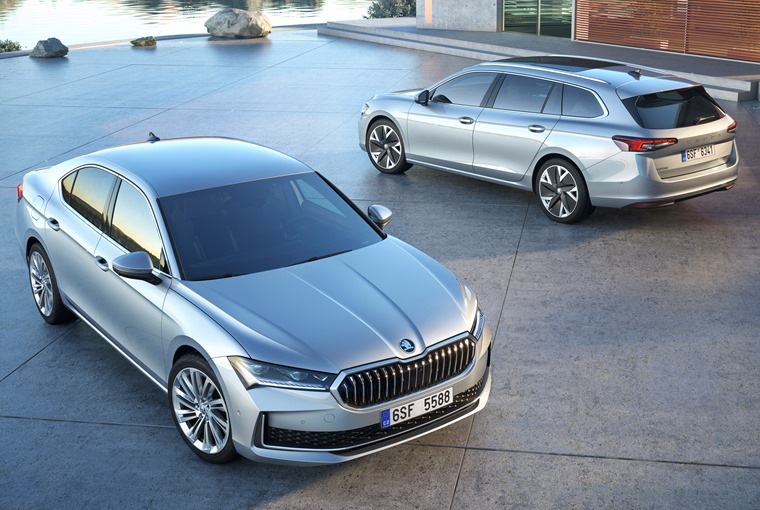BiK rates: EVs vs hybrids, the current rates and other key questions answered
Back to 'Expert guides'Benefit in Kind (BiK) is a crucial consideration for company car users, as it affects the total cost they pay on their company-provided vehicles.
In recent years, electric vehicles (EVs) and hybrid cars have benefited from lucrative BiK rates thanks to their green credentials.

But now, it’s solely EVs that benefit from the most generous rates – and those are set to increase over the coming years too.
In this article, we'll explore what BiK rates are, how they work and how EVs compare to hybrid, diesel, and petrol models in terms of what you’ll pay in 2024 and beyond.
Contents
- What is Benefit in Kind (BiK)?
- How does Benefit in Kind (BiK) work
- What are the current BiK rates?
- What are the current plug-in hybrid BiK rates?
- What about petrols and diesels?
- Are EVs best as a company car?
- Is a personal lease a better alternative?
What is Benefit in Kind (BiK)?
Benefit in Kind (BiK) is the tax liability an employee incurs when they receive non-cash benefits from their employer, such as a company car or take on a salary sacrifice scheme. The value of the benefit is calculated based on the car's list price, its CO2 emissions, and the employee's income tax rate.
BiK rates are intended to account for the personal use of a company car and are payable by the employee. Favourable BiK rates on EVs and PHEVs have been a big driver for the market. Their popular as company cars have resulted around 25% of new vehicles registered in the UK in 2023 being plug-ins.
BiK rates: How do they work?
BiK rates are calculated using a combination of the car's list price (P11D value), its CO2 emissions, and the employee's income tax rate.
To calculate your BiK tax rate, you need to multiply the P11D value of your vehicle by its BiK rate, and then multiply this figure with your own income tax band (20%, 40% or 45%).
The list price is a key factor, with higher-priced cars incurring higher BiK tax. CO2 emissions also play a big role, with cleaner EVs and plug-ins subject to lower BiK rates. Finally, your own tax rate will be used to calculate the exact amount of tax you’ll pay.

What are the current BiK rates?
The exact BiK rate for an EV depends on its list price and the employee's income tax rate. HM Revenue and Customs (HMRC) provides a BiK rate table that specifies the rates for different list price bands. Here it is in full.
| CO2 (g/km) | Electric range (miles) | 2023/24 (%) | 2024/25 (%) | 2025/26 (%) | 2026/27 (%) | 2027/28 (%) |
| 0 | N/A | 2 | 2 | 3 | 4 | 5 |
| 1-50 | >130 | 2 | 2 | 3 | 4 | 5 |
| 1-50 | 70-129 | 5 | 5 | 6 | 7 | 8 |
| 1-50 | 40-69 | 8 | 8 | 9 | 10 | 11 |
| 1-50 | 30-39 | 12 | 12 | 13 | 14 | 15 |
| 1-50 | <30 | 14 | 14 | 15 | 16 | 17 |
| 51-54 | 15 | 15 | 16 | 17 | 18 | |
| 55-59 | 16 | 16 | 17 | 18 | 19 | |
| 60-64 | 17 | 17 | 18 | 19 | 20 | |
| 65-69 | 18 | 18 | 19 | 20 | 21 | |
| 70-74 | 19 | 19 | 20 | 21 | 21 | |
| 75-79 | 20 | 20 | 21 | 21 | 21 | |
| 80-84 | 21 | 21 | 22 | 22 | 22 | |
| 85-89 | 22 | 22 | 23 | 23 | 23 | |
| 90-94 | 23 | 23 | 24 | 24 | 24 | |
| 95-99 | 24 | 24 | 25 | 25 | 25 | |
| 100-104 | 25 | 25 | 26 | 26 | 26 | |
| 105-109 | 26 | 26 | 27 | 27 | 27 | |
| 110-114 | 27 | 27 | 28 | 28 | 28 | |
| 115-119 | 28 | 28 | 29 | 29 | 29 | |
| 120-124 | 29 | 29 | 30 | 30 | 30 | |
| 125-129 | 30 | 30 | 31 | 31 | 31 | |
| 130-134 | 31 | 31 | 32 | 32 | 32 | |
| 135-139 | 32 | 32 | 33 | 33 | 33 | |
| 140-144 | 33 | 33 | 34 | 34 | 34 | |
| 145-149 | 34 | 34 | 35 | 35 | 35 | |
| 150-154 | 35 | 35 | 36 | 36 | 36 | |
| 155-159 | 36 | 36 | 37 | 37 | 37 | |
| 160-164 | 37 | 37 | 37 | 37 | 37 | |
| 165-169 | 37 | 37 | 37 | 37 | 37 | |
| 170+ | 37 | 37 | 37 | 37 | 37 |
For the tax year 2023/24, electric vehicles (EVs) typically enjoy lower BiK rates compared to traditional petrol and diesel cars. This is because EVs produce zero tailpipe emissions, making them environmentally friendly.
BiK rates are currently frozen until 2025, although the rate will then rise by 1% across all but the most polluting cars, which will stay at 37%.
What are the plug-in hybrid BiK rates for 2023/24?
Plug-in hybrid vehicles, which combine an internal combustion engine with an electric motor, also benefit from lower BiK rates compared to petrol and diesel cars, ranging between 5% and 14% for 2023/24.
Hybrid BiK rates vary depending on the vehicle's emissions and list price. Generally, though, plug-in hybrids are a tax-efficient option for company car users that can provide more flexibility than an all-electric vehicle.

What about petrol and diesel models?
Petrol and diesel cars typically have higher BiK rates compared to electric and plug-in hybrid models. This is because they produce higher levels of CO2 emissions.
As the government aims to reduce carbon emissions, it is incentivising the adoption of cleaner technologies by offering lower BiK rates for eco-friendly vehicles – while you’ll pay significantly more if you opt for a petrol or diesel model.
So are electric vehicles the best bet as company cars?
From a BiK perspective, yes. But whether electric vehicles are the best choice as company cars depends on various factors, including the employee's budget, driving habits, and environmental concerns.
The availability of charging infrastructure and the employee's daily mileage should also be considered. For this reason, a plug-in hybrid vehicle might be the best bet for many company car drivers. They still offer lower BiK rates, but offer extra flexibility as far as longer journeys are concerned.

Is personal leasing a better alternative to a company car?
Potentially. It all depends on the car you want, which tax bracket you fall into and what kind of car scheme your employer offers. For example, salary sacrifice schemes offer gains for those who fall into higher tax brackets and want an electric vehicle.
But it’s always worth comparing the cost of a personal lease with the tax savings offered on company cars. Some “good” company car deals might not be as great as they first appear, especially if you want a petrol or diesel vehicle.

Salary sacrifice vs leasing: Full guide
To sum up, Benefit in Kind (BiK) rates play a significant role in determining the tax liability for company car users. Electric and hybrid vehicles enjoy lower BiK rates for the tax year 2023/24 due to their lower emissions.
While electric vehicles offer a compelling case for tax efficiency and reduced operating costs, the choice between electric, hybrid, petrol, or diesel models ultimately depends on individual preferences and circumstances.
Consider your budget, driving habits, and environmental priorities when deciding on the best company car for you.